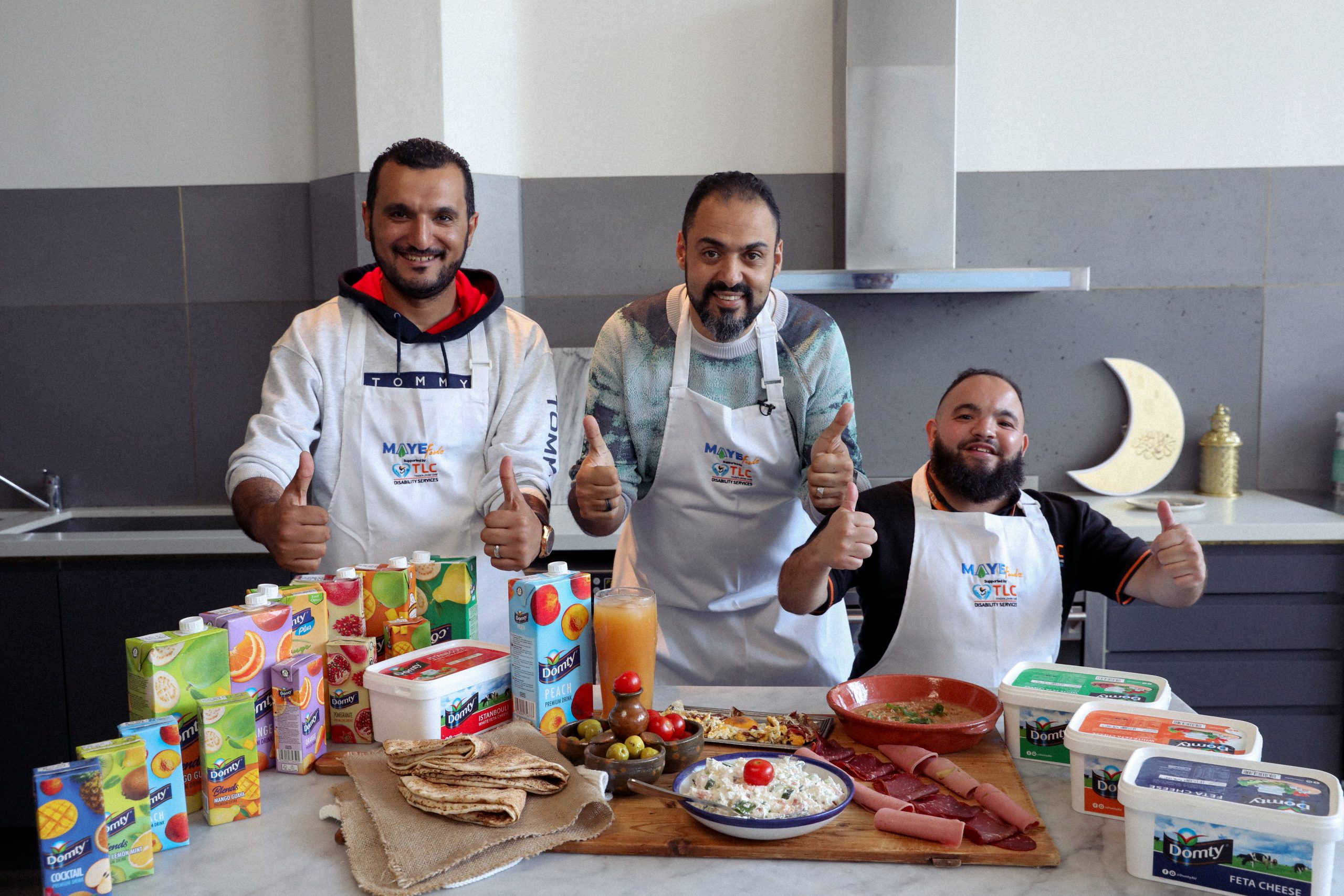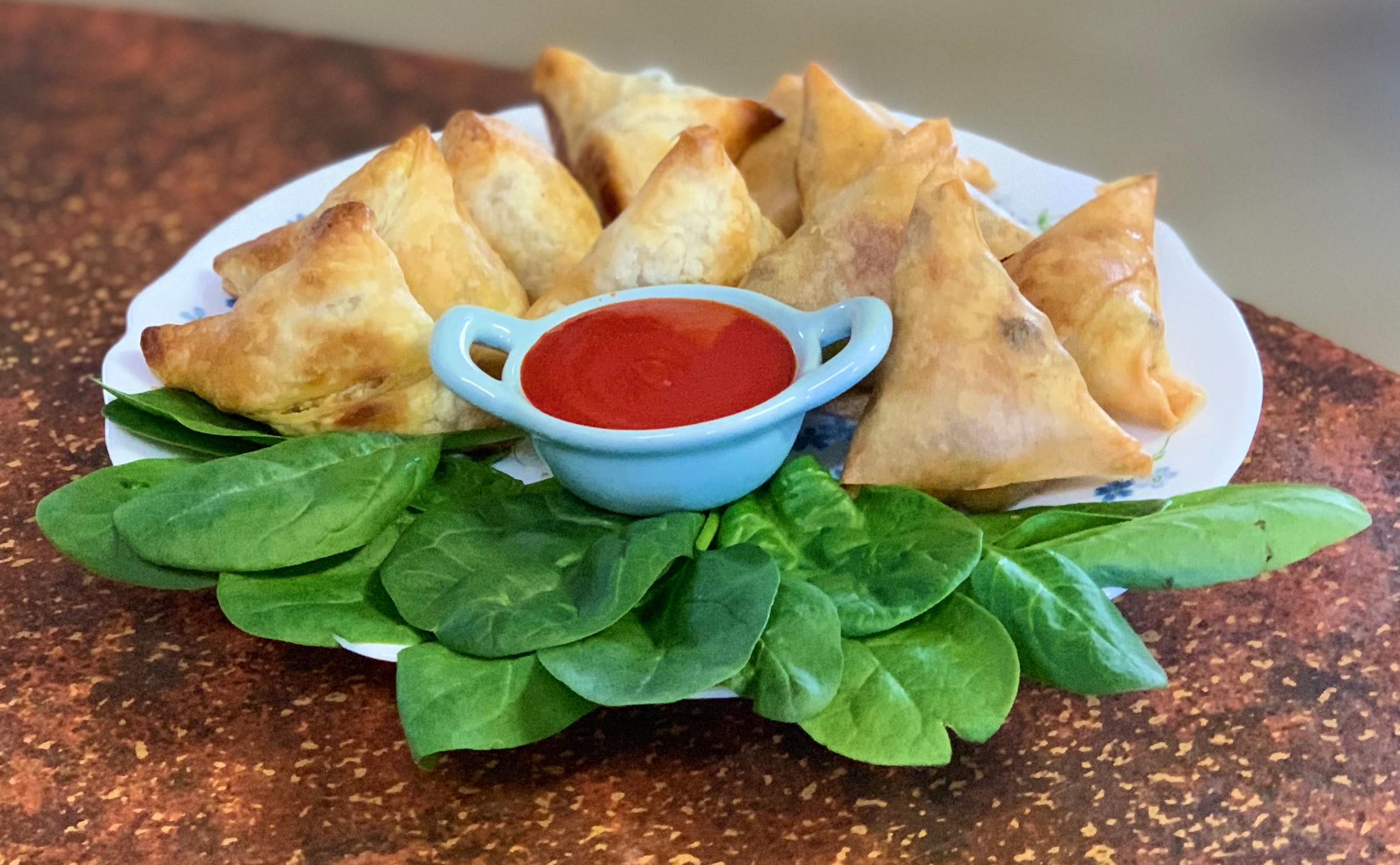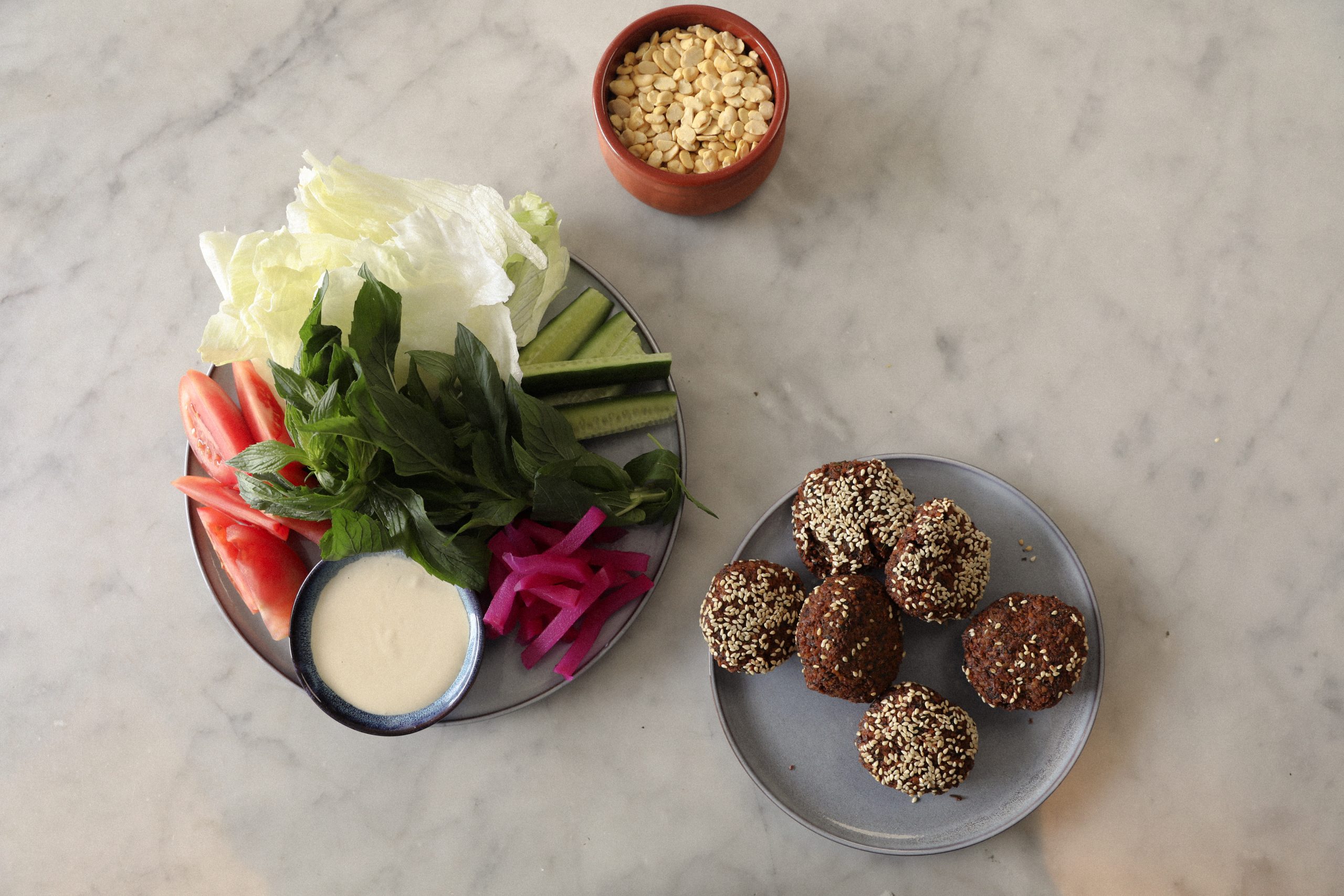Yasser’s Suhoor – Ful Medames
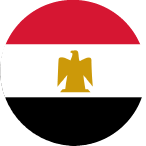 Egypt
Egypt 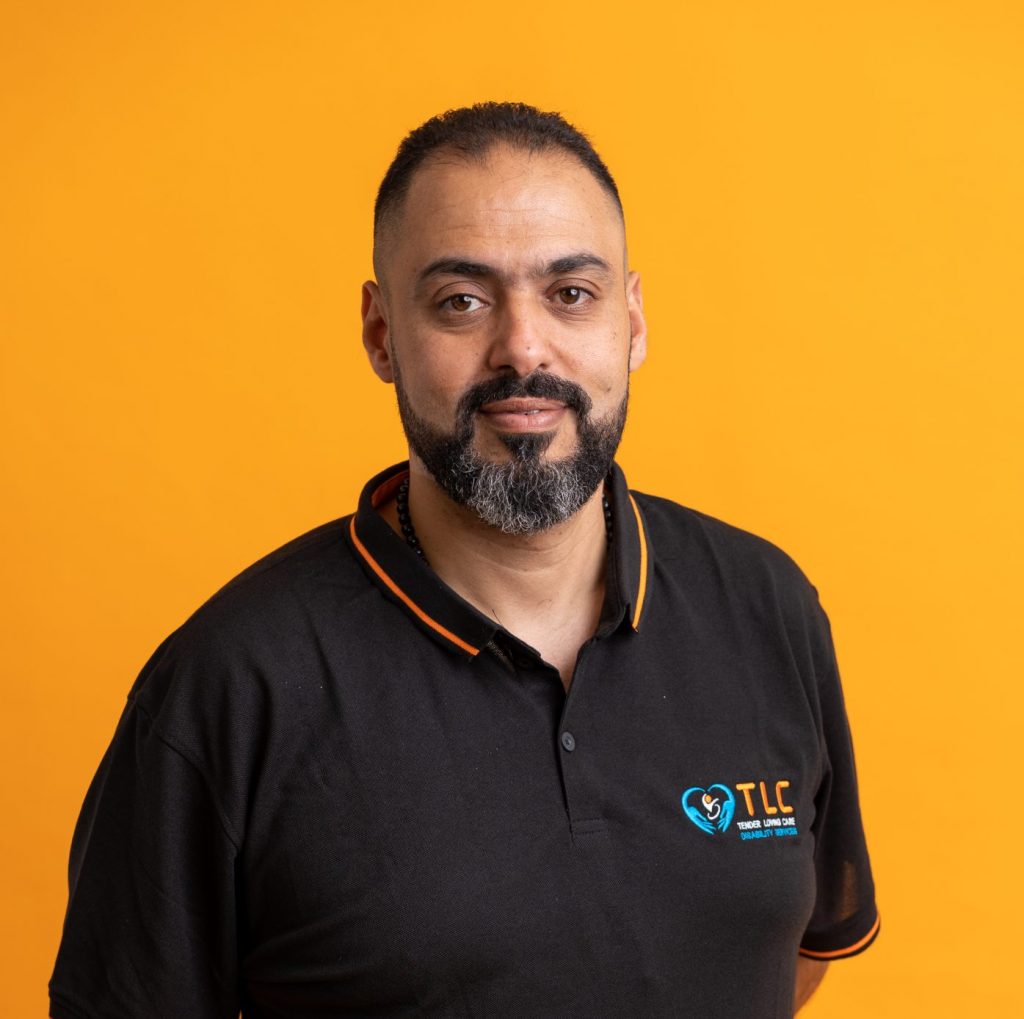
Growing up, Ramadan was a time of fasting and prayer and forgiveness, lights, lanterns, decorations, and most importantly family. I remember always thinking “Ramadan nights in Egypt are more special than anything else.”
I have two older brothers and a younger sister, and every Ramadan brings back the fondest of memories of being together to eat, talk and pray – things we all took for granted and miss now that we are scattered.
I was born and raised close to the sea in Alexandria, a historic coastal city at the mouth of the Nile which also stretches about 40km along the shores of the Mediterranean Sea along Egypt’s north coast. With its sandy beaches and Mediterranean climate, it is known as the Egyptian Riviera. The weather is good, the people are friendly, the culture is relaxed, and social life often revolves around food. Being on the coast and the river, seafood is especially popular and a local speciality.
Once the largest city in the ancient world, Alexandria is somewhere to put on your bucket list. There are numerous beautiful mosques, palaces, monuments, parks and gardens, architecture and historic sites that reflect its history from when it was first established as a port by Alexander the Great through the Greek, Roman, Arab and Ottoman empires to wonderful neoclassical and Art Nouveau architecture. The city was also a major centre of early Christianity and the Coptic Orthodox Church and Greek Orthodox Church both lay claim to this heritage.
Geographically, historically, religiously, and culturally, Alexandria has been a meeting point between the Middle East, Africa and Europe and has a rich history as an intellectual and cultural centre. Nowadays, it’s Egypt’s ‘second capital’, chief port and second largest city, the fourth largest city in the Arab world, the seventh largest city in Africa and still the largest city on the Mediterranean. You feel those influences in different ways but the Ottoman Empire, which Egypt was part of for most of four centuries, is probably the strongest influence and the Arabic we speak is heavily influenced by Turkish and quite different from the Arabic spoken in other parts of the Middle East – especially our slang!
But back to my family and to Ramadan!
Ramadan was a very family-oriented time. We always broke our fast together in the evenings and we always prepared for the day’s fasting together with a pre-dawn meal that in Arabic is called Suhoor. Suhoor aimed to fill our bellies for the day before the sun came up and fasting began.
One of my fondest memories is of the “mesaharati”, the Ramadan drummer who would come past our house an hour or so before sunrise, between 2 and 3am every night, to wake us up before Suhoor. It’s a very traditional thing. The drummer is local and called out our house as ‘the Zaki House’ but in my parents’ and grandparents’ time when communities were smaller, he would call out everyone’s names individually to wake them and remind them to eat before the sun rose.
Mum and Dad would both get up to prepare breakfast and as we grew up, we got up to help too but I remember the joy of waking up to the sound of the drummer and to a whole feast of food in preparation to fast the coming day.
Waking up to the “mesaharati” always meant waking up to the aromatic smell of ‘ful’, a dish of dried fava beans which is as popular in the Middle East as tomato baked beans are in Australia. It’s quite versatile and can be done in different ways but our family favourite was mashed together with lemon, garlic, chilli and olive oil.
Outside Ramadan, ‘ful medames’ – pronounced “fool mudammas” and just called ful for short – is eaten at all times of day, everywhere. In the cities, in villages, in the fields. As a traditional breakfast at home, a mezze in restaurants and on the streets as a takeaway. It’s ubiquitous. A staple dish that’s regarded by many as the national dish, it’s said to go back to the Pharaohs with beans found in the tombs of Pharaohs and an Arab saying that claims ‘Beans have satisfied even the Pharaohs’. Whether that’s true or not, ful is especially valued during Ramadan because it fills you up for longer so is a traditional part of the Suhoor spreads in many homes.
Before our day’s fasting, ful would be served in bowls sprinkled with fresh parsley and eaten with Egyptian bread. A bottle of extra-virgin olive oil would be on the table with quartered lemons, salt and pepper, and some crushed garlic, dried chilli-pepper flakes, and ground cumin so that we could each adjust to our own taste if we wanted to. You can also serve with hard boiled eggs, cucumber, tomatoes, spring onions, olives, pickles and salad leaves. Some people will put out tahini or yogurt. Or make a tomato-based sauce instead. Or crumble feta on top, which I love.
Most often we’d also have cheese and Egyptian bread, an apricot fruit juice and yogurt which helped you to not get too thirsty while you were fasting. Or we’d have scrambled egg and feta cheese. Cheese is often served with breakfast and feta cheese was always a winner for me – especially Istanbouli feta, an Egyptian white cheese made from pasteurised buffalo milk; soft and creamy, with a fresh, delicate flavour heightened with Jalapeno chillies. I’ve always loved it.
Traditionally, all Suhoor meals in Egypt are served with fresh bread and a big pot of hot tea, water and juice. Yoghurt also helps stave off thirst and dehydration. And if you want to finish with something sweet, jam and butter, honey or dates.
Such simple dishes as we made for Suhoor always tasted better during Ramadan and made this pre-dawn time so special.
At the other end of the day, late in the evening, the tarawih prayers at the mosque or at home were another special time of day. Tarawih literally means rest and relaxation and the tarawih prayers, which are only prayed during Ramadan, involve reading and reflecting on long portions of the Qur’an with many cycles of the physical movement involved in Islamic prayer. This was another special time growing up when we were always together as a family.
I moved to Australia for love. My wife was born and bred in Australia and although we met in Alexandria when she was visiting family, we ended up settling in Sydney. Being married quite young and moving here and gave me responsibility for my own family at quite a young age and when our first son was born premature, I was only 23 with no family support of my own. Our son was given just a 10% chance of survival and that time, the emotional struggle, and the challenge of navigating the healthcare system changed my view of the world and what I thought I was supposed to do in it. I’d been working as a computer engineer but to live my life with purpose as they say, I had to find a way to support vulnerable people and do something that could help people change their lives. I retrained via a Bachelor’s degree and then a PhD in Sociology and Social Work.
I call TLC a family because it is the extended family I’ve come to care about in Australia – and now in Dubai and potentially in the UK. As an NDIS (Australian National Disability Insurance Scheme) service provider, I wanted what we do to be based in care and to build connections between staff and participants in our programs that are as dependable and caring as a family. A family can argue and disagree but what it does is always rooted in unshakeable care and loyalty whether it’s about developing life skills or professional skills, independence or teamwork, building confidence and making friends, finding jobs or celebrating festivals like Christmas and Ramadan. We decorate our offices with Christmas decorations, complete with a fake fire and Christmas stockings, and last year, even with Covid restrictions, we held a socially distanced cooking class and iftar at the end of Ramadan, which you can check out here.
Australia is different to Egypt in many ways. When I was growing up in Alexandria, everyone used to participate in Ramadan. Our Christian friends used to fast and we used to celebrate Christmas so at school we never gave much thought to who was Muslim and who was Christian. Churches even put up Ramadan decorations. In Sydney, you have to go to the mosque or to the night markets in Haldon Street or to Muslim friends to feel the vibe, so Ramadan nights (from tarawih to suhoor) are very different. I’ve had to adapt to moving away from my family and to a different Ramadan experience. Ramadan in Australia is also a magical time but it’s been adjusting to and creating Australian-Egyptian traditions with my new family, maintaining some of the traditions that I had with my family in Egypt and bringing them here.
My centre of gravity has changed. It’s not in Egypt anymore, it’s here. I moved here in 2004, my older brothers moved to Cairo and my sister lives in Dubai. My parents luckily were in Sydney when the pandemic hit last March and have been able to stay.
My love of family will always be central and happily, food has a central role too. It’s such an important part of culture and I can’t think of a time when a family gathering, a visit from friends or a night out didn’t involve food. It provides a shared focus, puts people at their ease and gives you something to all talk about!
Last year, when the reality of Covid hit, we saw the threat to small and large businesses. We also saw panic supermarket shopping and more interest in home cooking. It became clear that whatever else was going on, whatever else you could or couldn’t do, everyone still needed to eat. It was then we launched our Culinary Program at TLC, helping people develop skills in buying, preparing, and serving food that would be useful personally and could provide skills to find a job in hospitality or the wider food industry. That also led to us setting up MAYEfoodz. It’s quite a thrill to be importing foods I loved in Egypt (including Istanbouli feta cheese and apricot juice) and to be providing a genuine pathway to employment. Our business plan is based on 70% of our staff being people with a disability, working right across the company and my experience at TLC tells me it’s achievable.
Preparing and sharing food is special during Ramadan, but it’s also a way of life; an important lifeline; a foundation for getting to know others, for expressing ourselves; a facilitator for conversations and relationships that build social skills, community connections, life skills and professional skills that can lead to independence. It’s one of the things in life that show how much we care.
I love good food – and the opportunity to share it. I wouldn’t claim to be a great cook but I enjoy being in the kitchen and can put a decent meal on the table. During Ramadan, I like to prepare suhoor for our three boys – sometimes something as simple as bread and Istanbouli feta or grilled haloumi, sometimes ful the way Mum makes it.
This Ramadan, I rustled up my Egyptian Suhoor in the Recipes For Ramadan Kitchen with MAYEfoodz MD Mahmoud Fagal, a TLC Culinary Program graduate and one of MAYEfoodz’s first employees Billy Etri.
Do try our Zaki family recipe for ful. It’s easy and could become a family breakfast, lunch or dinner favourite of yours too. I’ve also included a quick recipe for a tomato and feta accompaniment which uses Istanbouli feta cheese, one of the feta cheeses MAYEfoodz imports from Egypt.
Yasser Zaki
May 2021
@tlc_disability_services
@mayefoodz
Share this story
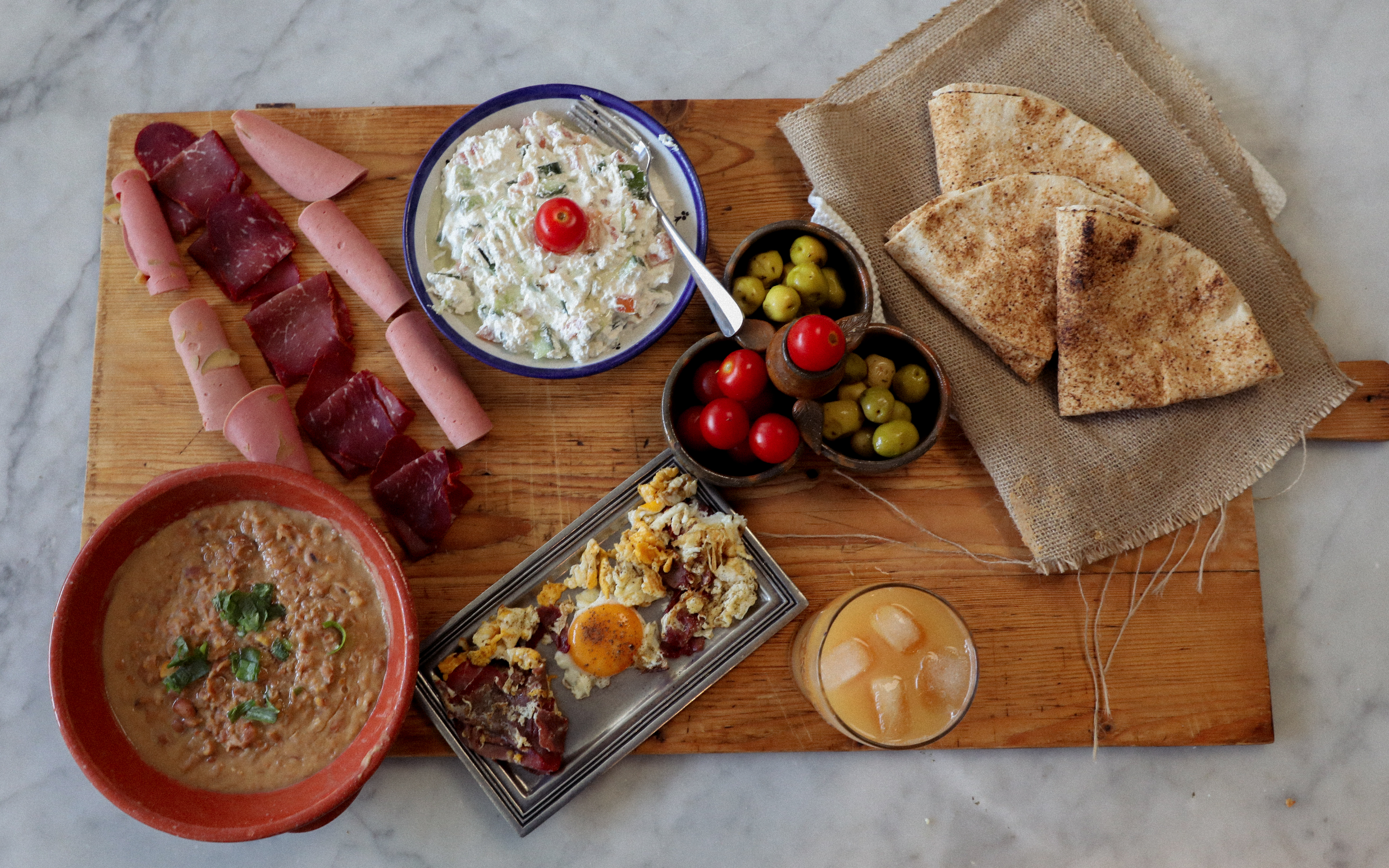
Drain and wash the canned fava beans and place in a bowl. Use the back of a fork or spoon or a potato masher and crush the beans until they are a nice, soft, chunky consistency.
Zest the skin of the lemon and reserve till serving. Squeeze the lemon juice.
Warm 2 tablespoons of olive oil or equivalent butter in a pan and gently soften garlic. Add chunkily mashed beans to the pan with 1 cup of water. Then add the lemon juice, pinch of salt, and a pinch of cumin (which is great for flavour and also aids digestion). You can also add dried mint.
Stir over a low heat. If the mixture is too thick, add a little more water. Adjust seasoning to taste.
Scatter with parsley, mint and lemon zest. Drizzle with remaining olive oil.
Serve warm or at room temperature with Egyptian, Lebanese or pita bread, rice and/or plain yoghurt.
To make Feta with Tomato & Cucumber as a side: Finely dice 2 tomatoes and 1 large cucumber and stir gently into several tablespoons of Domty Istanbouli Soft Feta Cheese in a bowl. The creamy texture of the cheese should coat the vegetables. Serve with fresh Lebanese bread.
(Prep Time 5 minutes; Cooking Time none; Serves 4 as a side)
Ful can be further dressed up with a drizzle of tahini sauce and fresh chopped tomato, cucumbers, olives, red or spring onions, peppers or chilies served on top or as sides.
Leftovers keep well for 2-3 days in the fridge. Just double up the recipe.
Ful is also an easy centre-piece for a vegan feast for iftar or brunch, lunch or dinner at other times of the year, serve with falafel (see Amina’s Taamiyah / Egyptian falafel), roast vegetables and sides like hummus (see Lina’s Hummus) or Baba Ghanoush (see Moodi’s Mother’s Baba Ghanoush) and a green salad or the tomato and cheese salad below.
